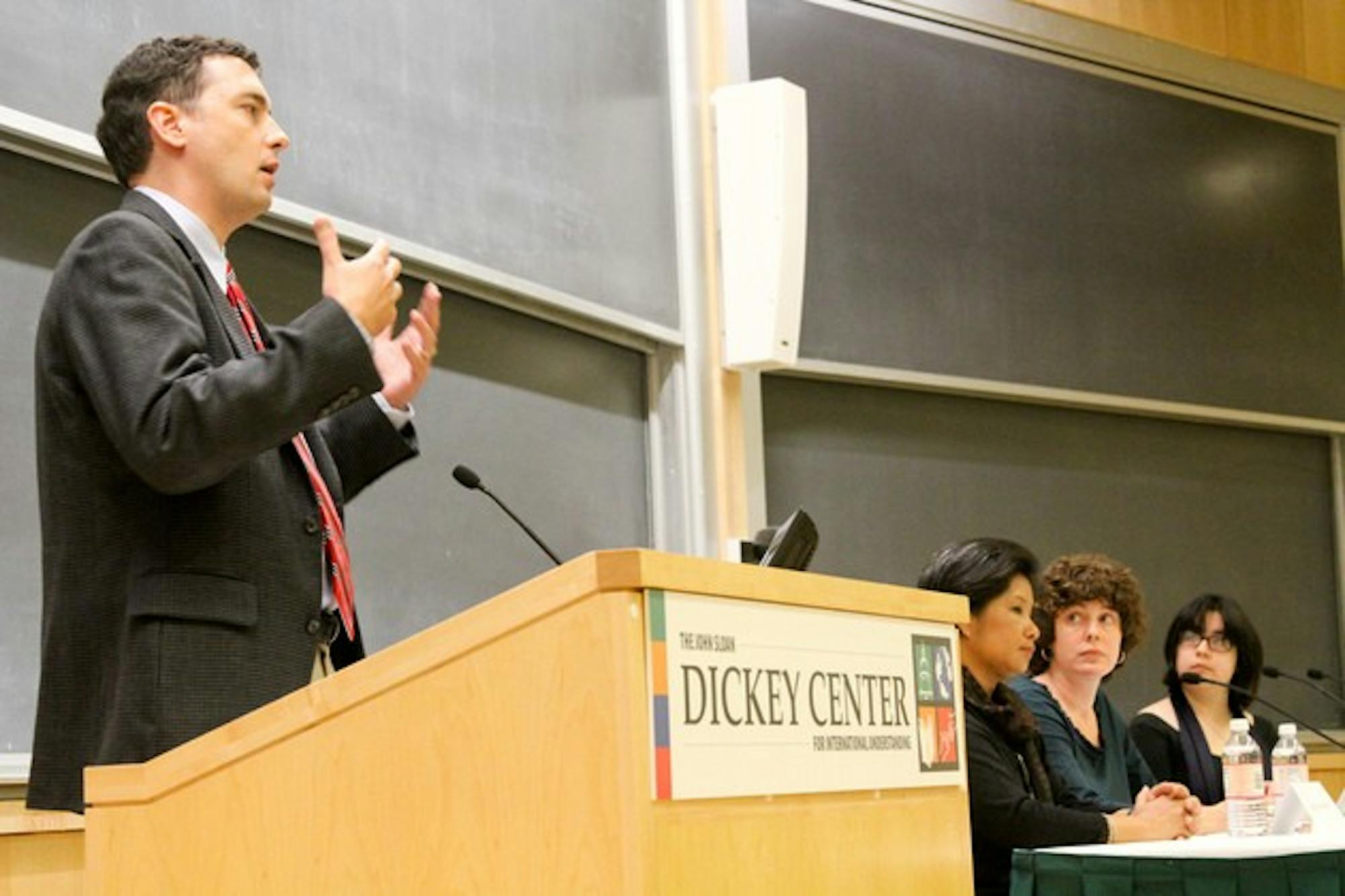Shapiro, who choreographs for the Khmer Arts Ensemble and was a 2009 National Heritage Fellowship recipient, discussed her life as a refugee during the rule of the Khmer Rouge, a communist movement in Cambodia that led to the deaths of around two million people.
"We can only move into the future when we resolve ourselves with the past and find peace within ourselves," she said.
Shapiro described her work both as a means of preserving a Cambodian dance tradition nearly lost during the Khmer Rouge and as a way to address the trauma she faced in the past.
As she spoke, a clip of a performance she choreographed played in the background to illustrate how she incorporated this theme into her work.
History professor Edward Miller, another panelist, put Shapiro's story into a historical context, attributing Cambodia's mass killings during the 1970s to both existing racism from French colonialism and American involvement in Vietnam. He also discussed art's role in healing the Cambodian people's wounds.
"Art can be a way to establish deeper historical truths," he said.
Miller told the story of Chea Samy, a famous Cambodian dancer who narrowly escaped death when the Khmer Rouge began targeting artists. After the regime fell, Samy pushed to reopen the Cambodian School of Fine Arts and trained Shapiro as one of her students.
Theater professor Laura Edmondson shifted the panel's discussion from Cambodia to east Africa. Edmondson also discussed the role of theater and dance in dealing with tragedy, loss and human rights violations, while elaborating on art's ability to create new "truths."
She remembers watching the dances of the Acholi people in their refugee camps during the Ugandan civil war, she said, adding that the powerful physical symbolism of their dances helped them to maintain their sense of community in the face of great adversity.
Panelist Aimee Le '12 summarized the role of art and poetry in overcoming trauma.
"Trauma is an event that can't be explained, so it can't be healed until you understand what to heal and how to heal it," she said. "In the world of rational concepts, poetry is a lie. Yet in this same world, trauma is also a lie."
Poetry and art can be the best means of approaching and understanding trauma and can be a powerful tool for addressing injustice in society, Le said.
The panel, which was cosponsored by the Dickey Center for International Understanding and the Hopkins Center, was part of the Dartmouth Centers Forum's series "Speak Out! Listen Up!" The event was held in conjunction with performances by the Khmer Arts Ensemble on Tuesday and Wednesday.




